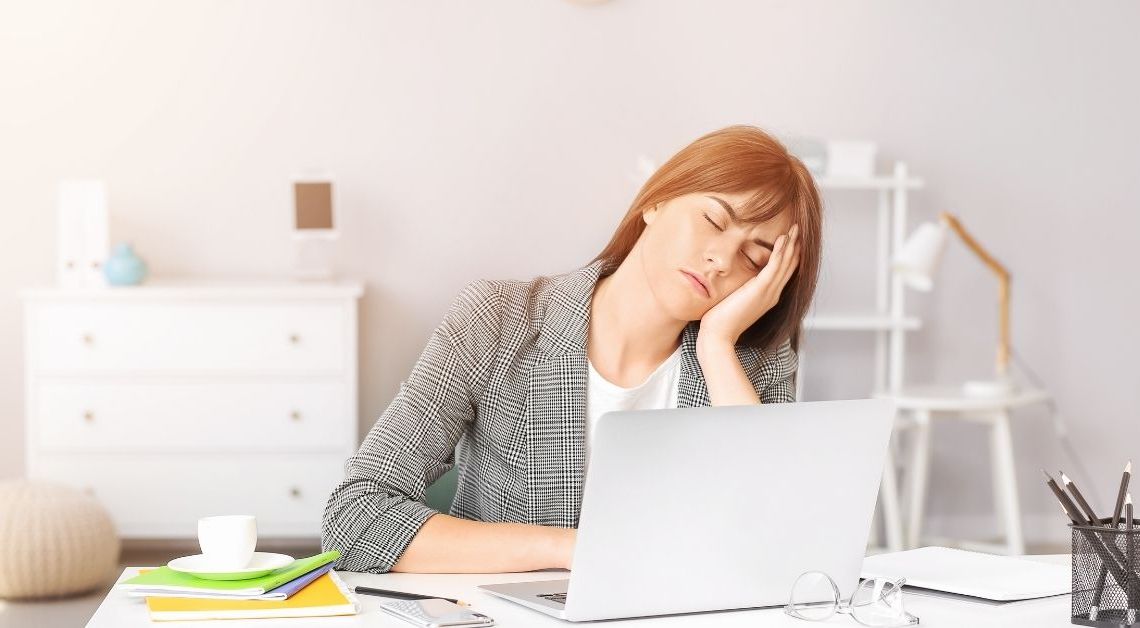
Hey there, night owls and screen enthusiasts! In this blog post, we’re about to dive deep into the fascinating world of blue light, screens, and how they can influence your sleep patterns. So grab your favorite cozy blanket and settle in because we’re in for a journey through the land of dreams!
What on Earth is Blue Light, Anyway?
Okay, before we get into the nitty-gritty, let’s break it down: What exactly is this blue light thing we’re talking about? Well, it’s the kind of light that beams out of your screens, such as smartphones, tablets, and laptops. It’s the light that makes your screens look bright and vibrant. But here’s the kicker – it’s not always your sleep’s best buddy.
Blue Light: A Nighttime Intruder
Picture this scenario: it’s late at night, and you’re sprawled out on the couch, engrossed in the latest episode of your favorite TV show. Little do you know, that seemingly harmless blue light is quietly wreaking havoc on your sleep plans. Why? Well, our bodies have this nifty internal clock that operates on the natural cycle of the sun. When it’s dark outside, it’s time to hit the sack. But when your screen bombards you with blue light after the sun’s gone down, your brain gets confused. It thinks it’s daytime, and that’s when your sleep schedule goes for a toss.
The Epic Battle: Blue Light vs. Your Zzz’s
Let’s zoom in on this epic battle, shall we? You’ve had a long day, and all you want is a good night’s sleep. You crawl under your comfy covers, close your eyes, and… nothing. Your brain is still buzzing from all that screen time. It’s like your brain’s way of saying, “Hey, why sleep when there’s a whole world of content out there?” This, my friends, is the infamous blue light effect.
Strategies to Fight Back and Reclaim Your Sleep
Now, it’s not all doom and gloom. There are some clever strategies you can employ to combat the effects of blue light and reclaim your sleep kingdom. Here’s the lowdown:
- Embrace the Warm Glow: You know that “night mode” or “blue light filter” setting on your devices? It’s your best friend in this battle. When activated, it bathes your screen in a warm, orangey glow, which is much easier on your eyes. So go ahead, give it a whirl.
- Set Some Boundaries: Let’s talk about digital curfews. It’s like telling your screens, “Hey, after a certain hour, we need some space.” Try to steer clear of screens at least an hour before bedtime. Instead, consider winding down with a good book, a soothing bath, or some gentle yoga stretches.
- Blue Light Blocking Glasses: These are like your secret weapon against the blue light invasion. They’re designed to filter out the harmful rays while still letting you enjoy your screen time. So, think about adding a stylish pair to your eyewear collection.
- Light Up Your Bedroom Right: Your bedroom should be your sleep sanctuary, and lighting plays a big role in setting the mood. Opt for soft, warm lighting rather than harsh, bright bulbs. This sends a signal to your brain that it’s time to relax and unwind.
- Nature’s Reset Button: Here’s a simple yet effective trick – spend more time outdoors during the day. Natural light is your best ally for resetting your internal clock and ensuring a better night’s sleep.
The Dreamy Conclusion
So, there you have it, folks! The whole scoop on how blue light can mess with your sleep and some practical tricks to overcome its effects. Remember, it’s all about finding balance in this screen-filled world. Embrace these changes, and you’ll be well on your way to sweet dreams and energetic mornings. Here’s to restful nights and the joy of waking up refreshed! 💤
FAQs about Blue Light and Sleep:
Q1: Does blue light really affect my sleep patterns?
A1: Absolutely! Blue light emitted by screens can disrupt your sleep patterns. It messes with your body’s production of melatonin, the sleep-regulating hormone. This can make it harder for you to fall asleep, especially if you’re exposed to screens in the evening.
Q2: How can I reduce the impact of blue light on my sleep?
A2: There are several effective ways to minimize the effects of blue light. One simple step is to use the “night mode” or a blue light filter on your devices. Additionally, consider setting a digital curfew and avoid screens for at least an hour before bedtime.
Q3: What are blue light blocking glasses and how do they help?
A3: Blue light blocking glasses are specially designed eyewear that filters out the harmful blue light emitted by screens. By wearing them, you can enjoy your screen time without the negative impact on your sleep. They’re a great addition to your toolkit for better sleep hygiene.
Q4: Can changing my bedroom lighting make a difference in my sleep quality?
A4: Absolutely! The lighting in your bedroom plays a significant role in your sleep quality. Opt for soft, warm lighting instead of harsh, bright bulbs. This helps signal to your brain that it’s time to wind down, creating a more conducive environment for restful sleep.
Q5: Is spending time outdoors during the day really beneficial for my sleep?
A5: Yes, it is! Natural light is like a reset button for your internal clock. Spending time outdoors during the day helps regulate your circadian rhythm, making it easier for you to fall asleep at night. So, embrace the sunshine for better sleep at night!
Also Read: Tech Neck SOS: Effective Tips to Relieve Neck and Shoulder Pain from Device Use






